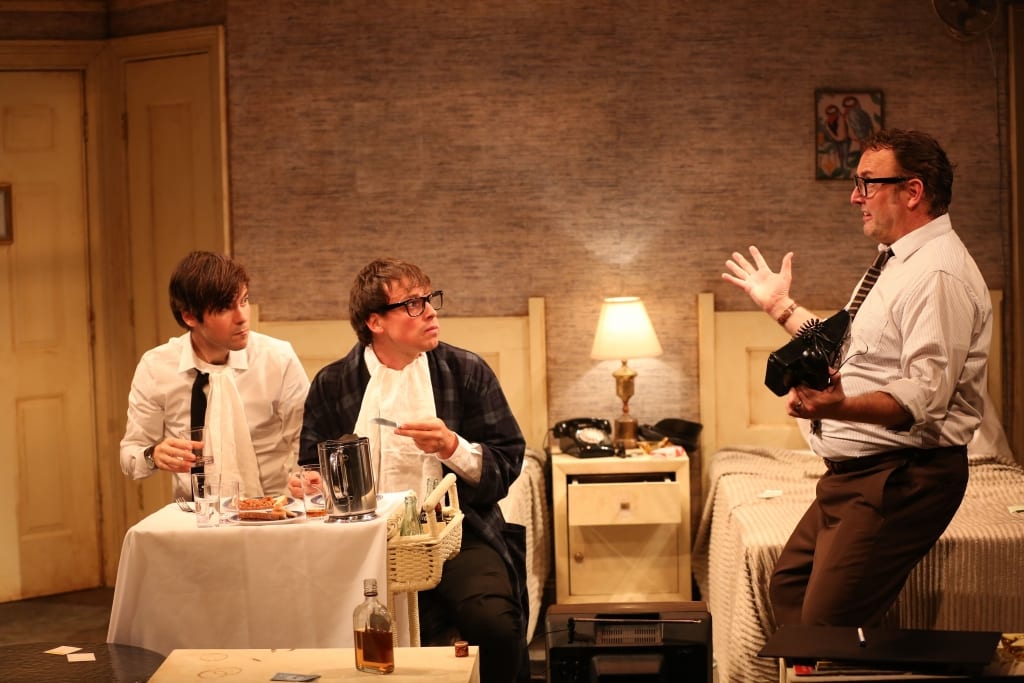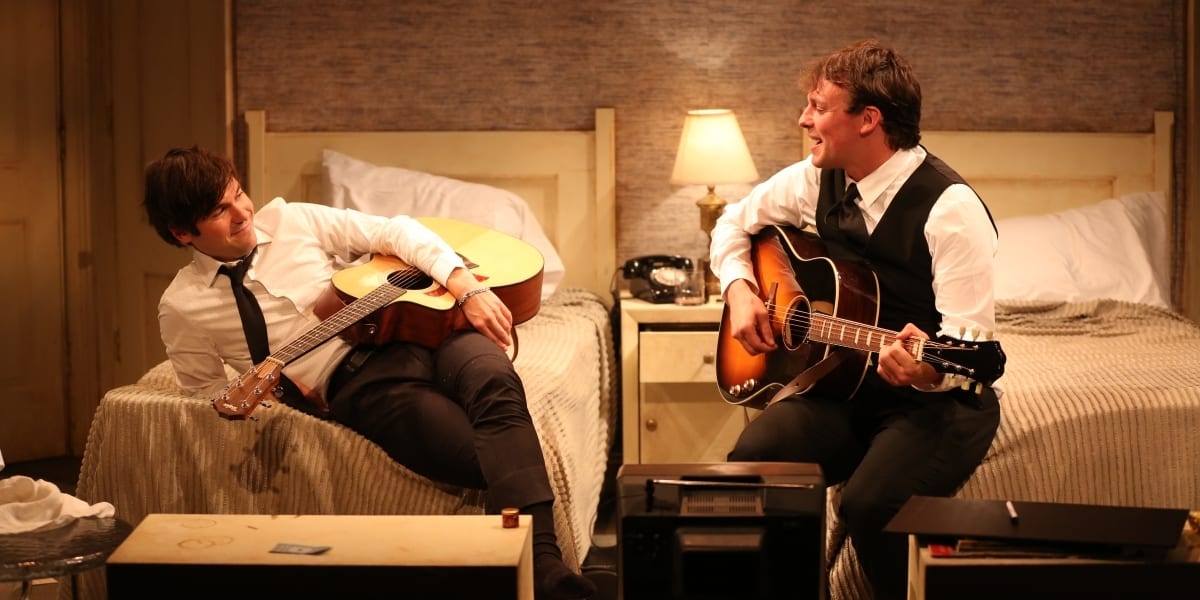5
Reviewer's rating
On their way to become two of music’s most beloved songwriters, Lennon and McCartney spend a rollicking, rocking night stranded in a bland, blonde hotel room in Key West, singing, getting drunk, and reminiscing.
Only Yesterday is built on a comment Paul McCartney gave to an interviewer about his song “The Night We Cried”, which was inspired by a conversation he had with John Lennon that night about their mothers. Beatles fans are known for devouring every morsel of information; the play fleshes out this newly revealed detail into a delightful, exuberant valentine to the pair. They’re on way to superstardom but each still suffers the pains of loss.
A hurricane has rerouted the band from Jacksonville to Key West, and they are forced to stop their frenetic pace for a single night, resulting in a chance to sing familar covers (The House of the Rising Sun, Rollover Beethoven), collaborate and compete, argue about Bob Dylan, and talk about where they’re headed. They finally slow down enough to examine the deaths of their mothers, that has left them shattered and adrift even as they are surrounded by adoration.
Tommy Crawford with his mop-top and lean body is perfectly cast as McCartney, while Christopher Sears – as taller, older, crustier Lennon – both know their way around guitars, and their chemistry and energy are a joy to watch. John the prankster and curmudgeon is always calmed and gently challenged by the diplomat Paul.

Together they sing to Shirley, a fan stuck in an air vent. In this moment they become the ideal lovers their fans imagine them to be through their love songs: sweet, kind, obliging, understanding, literally serenading her.
Writer Bob Stevens – a Peabody Award winner and three-time Emmy nominee best known for his television work – has penned a script that plays on the collective love of the Fab Four, riffing on their cheekiness towards the press, their wordplay, energy, and endless media coverage of the dynamic between Lennon and McCartney. Even when the two are bored and saying nothing, we’re entertained. When a guest in an adjacent hotel room tells them to pipe down their singing, it’s hilarious because of its preposterousness – doesn’t this guy know who they are or are yet to be?
Stevens’s script also tips to a few of the great lines uttered by the band on their first US visit. “I’m the married one” nods to Lennon’s caption at their legendary Ed Sullivan debut; “We got haircuts yesterday” riffs on George’s brilliant ad-lib during their press junket at JFK held moments after their first arrival on US soil.
The play’s tone moves effortlessly from funny and charged to poignant, the two each confronting the deaths of their mothers who would never see them mature and succeed. That they share such deep pain is another point of connection and confrontation. And there are nods to the tragedy of Lennon’s death that would be years off, and a foreshadowing of the loss McCartney would feel again losing his wife Linda.
Sound designer Jane Shaw creates an amazing audio moment that combines the sound of thunder folded together with the shouts of screaming fangirls. Lighting designer Dan Kotlowitz uses the evening’s stormy weather to produce some gorgeous stage effects.
A song closes the play that will forever change the way you hear it, and is the perfect end to a delightful love letter to the band.

